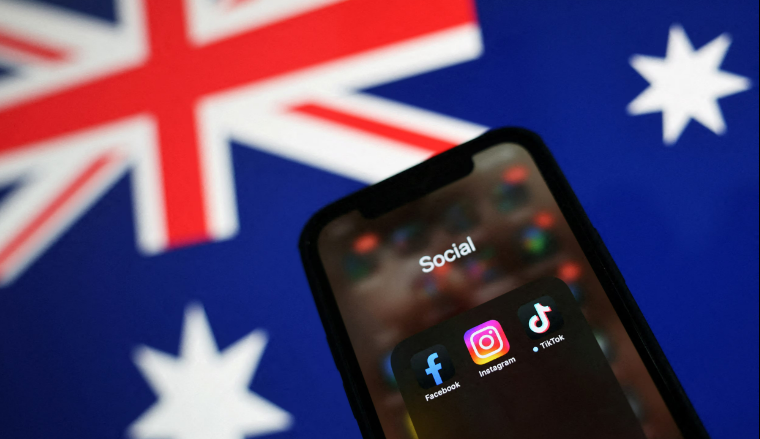Australia’s Parliament has taken a groundbreaking step, voting to ban social media use by children under 16. The Social Media Minimum Age Bill is being described as “the most sweeping legislation yet passed by a democracy to restrict access to social media,” a realm increasingly under governmental scrutiny worldwide.
The Australian Senate passed the bill late Thursday, with 34 votes in favor and 19 against, despite protests from opposition lawmakers who called for lengthier discussions. The legislation was confirmed by the House of Representatives the next day.
What the Bill Requires

The bill mandates companies like Meta and TikTok to take “reasonable steps” to prevent children under 16 from accessing their platforms. Companies that fail to comply will face fines of $32.5 million (USD). Enforcement is set to begin in January, though full compliance will not be required until the end of 2025, giving platforms time to adapt.
Prime Minister Anthony Albanese defended the legislation, stating, “Social media is doing harm to our children. Platforms now have a social responsibility to ensure the safety of our kids is a priority for them.” He added, “’We’ve got your back,’ is our message to Australian parents.”
Communications Minister Michelle Rowland outlined that the law will apply to platforms including Facebook, Instagram, Snapchat, TikTok, and X (formerly Twitter). However, sites that don’t require account log-ins, like YouTube, as well as messaging and gaming sites, are not included.
Read more: Black Friday Sales: Watch Out for This Sneaky Trick During
Children who bypass the ban using tools such as VPNs will not face penalties. “We don’t argue that its implementation will be perfect, just like the alcohol ban for [children] under 18 doesn’t mean that someone under 18 never has access,” Albanese said, according to reports. “But we know that it’s the right thing to do.”
Reactions from the Industry
Social media companies have responded cautiously. Meta stated it “respects the laws decided by the Australian Parliament” but expressed concern over the speed of the legislative process. TikTok Australia said, “We want to work together to keep teens safe and reduce the unintended consequences of this bill for all Australians.”

The Global Context
Australia’s move is being closely watched by other democracies. According to reports, countries like France have already implemented restrictions, requiring parental consent for children under 15 to use social media. Meanwhile, governments in Norway, the U.K., and some U.S. states are considering similar measures.
Authoritarian governments, however, approach the issue differently. Beijing enforces its “Great Firewall,” banning most Western social media platforms, including Chinese-owned TikTok. North Korea operates a closed intranet, blocking access to the global web entirely.
Why It Matters
The legislation reflects growing concerns about the psychological harm social media can inflict on children, including bullying, ostracism, and exposure to harmful content. These risks can lead to issues ranging from damaged self-esteem to suicide.
As one of the world’s leading democracies, Australia’s decision could become a benchmark for balancing youth protection with the rights to free expression and assembly. “Canberra may offer a benchmark for other parliaments,” the article notes, as governments grapple with the regulatory challenges of the digital age.


